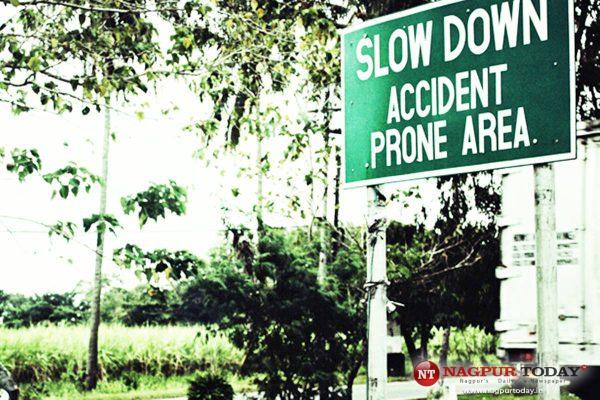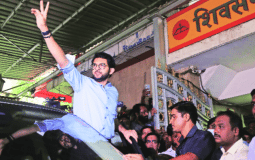NMC’s green signal to Project iRaste to curb road accidents in the city
Nagpur: With a view to curb the road mishaps and also reduce the fatalities, Nagpur Municipal Corporation(NMC) okayed the project of iRaste combining use of advanced technology alongside targeting citizens to achieve twin results.
During the survey, 37 black spots were identified that were studied by a team of experts who made a presentation to civic body officials and suggested remedies. At the same time, Raju Wagh, Member, National Road Safety Council, Union Transport Ministry, called for bringing a change in mindset of people through community participation. Similarly at the meeting Wagh also suggested taking up work on improving surfaces at 20 Grey spots in the city so that minor mishaps can be curbed and bring along necessary change in habits of the citizens through Intelligence Solution for Road Safety through Technology and Engineering (iRaste).
The meeting held at NMC headquarters was chaired by Radhakrishnan B, Municipal Commissioner and Administrator. Pradip Khawse, Chief Engineer, Public Works Department, NMC; Ravindra Bundhade, Executive Engineer (Traffic); Shrikant Deshpande, Deputy Engineer, officials of National Highway Authority of India (NHAI), Traffic Control Branch, Nagpur city police, also were present.
The experts who made presentations were Varma Konala, CEO, INAI, Gopinath Chappidi, IIT Hyderabad, Dr Ambu Mani, Principal Secretary, INAI, Dr Velnuruyan Senapati, Chief Secretary, CRIA. One of the technological interventions planned is installing CCTV cameras in city buses that would sound a hooter to sound a warning to road users in case of possibility of a mishap.
iRaste officials said a comprehensive survey report is ready and presented their findings and possible interventions. As to black spots, the PWD would carry out necessary modifications on the roads. For example, in case there is visual obstruction, a pole or a tree then suitable measures for its shifting is going to be taken.In case of blind spot, the road would straighten that would avoid collision. Road shoulders can be increased to widen the road so that enough space is available for movement of vehicles.
During the meeting, Wagh said while technological interventions are okay but there is a basic need to inculcate change in behaviour of citizens. He suggested undertaking a pilot project at five identified black spots and grey spots where citizens would be counselled and asked to modify their behaviour in using the roads. The concentration would be on community awareness wherein each member of the family is going to be assigned some fixed duty. He said that the head of the family, the housewife or working woman, the children would be administered an oath about strictly following the traffic rules.















